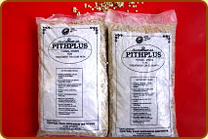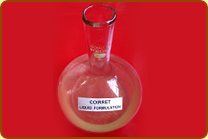
Microbiology Department
| |
Home Page |
| |
| Headed by Dr.Radhakrishnan.S, Senior Scientific Officer(i/c), Microbiology Ph-+91 477 2258480 (Bio-data) |
| |
|
| The Microbiology Department of CCRI concentrates on research leading to development of user-friendly, cost effective and environment safe technologies for the coir industry through bio-technological intervention. Bio-bleaching of coir fibre and exploring the possibility of extracting the lignin in coir for economical end use are subjects of study. The activities in the department over the past two decades have led to the formulation of COIRRET & PITHPLUS. Coirret is the formulation for reducing the period of retting of coconut husk to three months and un-retted coir fibre in 72 hours(3 days). PITHPLUS converts coir pith into coir pith organic manure (C-POM). The PILOT SCALE LABORATORY established in 1994 initiated extension of COIRRET & PITHPLUS to the entrepreneurs in all coconut growing states in India for treatment of coconut husk, coir fibre and pith |
| |
| ACTIVITIES |
| To develop a consortium of efficient micro organisms f53-or biological treatment of coir retting effluent. |
| Research investigations on synthesis of vanillin from sodium lignosulphonates extracted from coir pith
Coir is used as a ecofrendly material for construction of Coir Net House for growing plants
|
| Chemical characterization and modification of coir fibre for enhanced longevity and their physico chemical studies through collaboration with IICB, Kolkata |
| Conduct studies on coir pith as bio absorbent for removal and recovery of toxic metal ions from solutions at lower pH through collaboration with BARC, Mumbai |
| Development of an enzyme kit for biosoftening and biobleaching of coir fibre through collaboration with IACR, Kolkata |
| To maintain the routine production of COIRRET and PITHPLUS in the Pilot Scale Laboratory for catering to its requirement in the coir industry |
|
| |
| SERVICES |
| Extension of COIRRET & PITHPLUS from the Pilot Scale Laboratory |
| Testing of coir pith for NPK, Salinity, Electrical Conductivity, pH, Lignin, Moisture, Cation Exchange Capacity(CEC), E.coli and Salmonella |
|
| |
|
|



